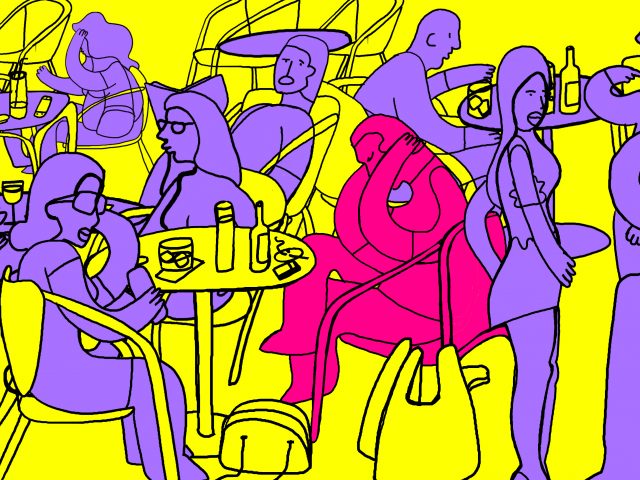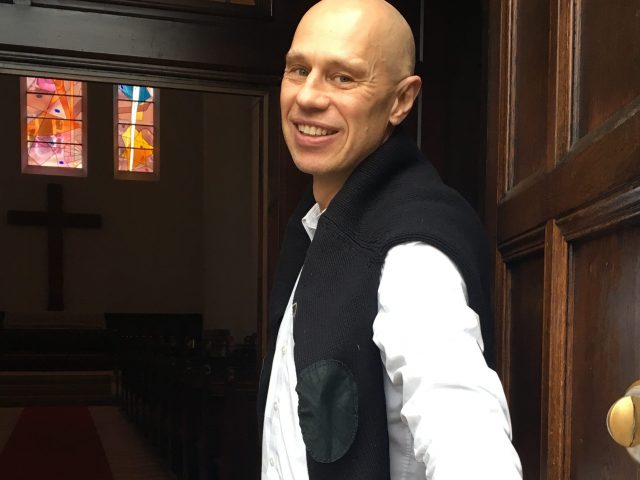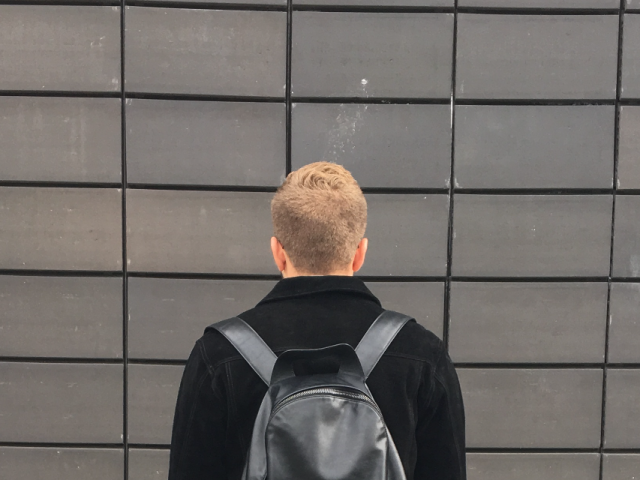Grade-free classes: Tackling a stressful performance culture
CBS WIRE asked eight students, what they think about the initiative on not giving students grades the first year of their bachelor's degrees, but instead be given more feedback. (Video: CBS WIRE)
All new students enrolled in the Bachelor of Business Administration and Psychology will not be given any grades during the first year of their bachelor’s degree. They will be given a lot more feedback instead. The three-year project is an attempt to limit the pressure and stress that students experience from having to perform well.
How would you feel about not getting one single grade the entire first year of your bachelor’s degree, but instead be given more feedback?
The new students enrolled at the Bachelor of Business Administration and Psychology (HA Psyk) will find out as the study board has decided to make their first year grade-free.
CBS is not the first university to introduce grade-free classes. The University of Copenhagen has already introduced a grade-free first semester at the Bachelor of Political Science and at the Bachelor of Anthropology, as they, like CBS, are struggling with a performance culture that pushes the students to an extent where they become too stressed, which can – paradoxically – lead to underperformance.
“There is no doubt that the level of stress is sky-high during the first year of studies, and it is mainly the grades causing it. Later on, it’s more about finding a job and writing a thesis. But nothing seems to beat the level of anxiety and stress caused by grades. So if we take out the grades during the first year, we hope students can get more of a relaxed introduction to their studies,” says Ursula Plesner, Program Director for the BSc and MA in Business Administration and Psychology.
We hope to see students becoming less occupied with exams and grades during their first year
Ursula Plesner
Jeppe Ask Tofteskov, the President of CBS Students, is a great fan of the new initiative.
“This is a really good response to the competitive culture at CBS as it gives students a better chance to see what studying at CBS is all about, and it forces the teachers to give students more feedback, which is really good,” he says.
Gregor Halff, the Dean of Education at CBS, is curious to see what the new initiative will bring.
“Will it reduce stress? Let’s find out. But I’m quite sure it won’t reduce the workload for students and professors. I commend HA Psyk for this experiment and I look forward to studying the results,” he says.
Enough of the rolling eyes
The idea for the initiative started when students, teachers, supervisors, mentors and the study board were invited to discuss the study environment and culture at the bachelor’s program, as it was clear that the performance culture and competitiveness common among CBS students were also present at the Bachelor of Business Administration and Psychology.
“Many students believed that their traditionally very supportive study environment was threatened. Students, supervisors, teachers, and mentors experienced that students seemed increasingly focused on the exams and on never straying away from the curriculum,” says Ursula Plesner and continues:
“If someone raised their hand and asked about something that wasn’t directly linked to the curriculum, students would sigh and roll their eyes.”
It was clear that something had to be done. It wasn’t enough to just tell the students not to focus too much on grades.
“I met with Annemette Kjærgaard, Rie Snekkerup and a group of colleagues, and we talked about what it is during the first year that makes the students stressed and at risk of dropping out. It was obvious to us that grades played an important role. So, we talked about doing this grade-free first year experiment at the Bachelor of Business Administration and Psychology,” says Ursula Plesner and explains that the study board and the course coordinators have worked hard during the past six months to figure out how to introduce new ways of giving feedback and how to change the exam forms to keep students engaged. The study intensity is meant to remain the same even if students “just have to pass.”
There is no doubt that the level of stress is sky-high during the first year of studies, and it is mainly the grades causing it
Ursula Plesner
One way of giving feedback is through the model called Rubric. Using the model, the teacher scores an assignment based on various parameters, thereby giving qualitative feedback that provides the student with an idea of their level, what they have to continue working on, and what they’re good at.
Gregor Halff doesn’t think that removing the grades will cause a reduction in the quality of the education, rather a rise in more reflective learning.
“The grade-free year is designed to deeply embed alternative forms of learning and assessment into the curriculum. So, I see it as an addition, not a reduction, because iterative forms of reflective learning have been added,” he says.
Grade-free first years for everybody?
Students starting in September will be asked to evaluate their experience of not being given any grades throughout the year. For instance, they will be asked about the study environment and their wellbeing as a CBS student. Furthermore, data on dropouts, withdrawals for registration for exams, reports of stress-related sick leave, and the level of grades during the third semester will be collected to evaluate the project based on various parameters.
“We hope, even though it’s a little fluffy, that we will see a rise in engagement in learning. We hope to see students becoming less occupied with exams and grades during their first year, and that this will have a spillover effect on the third semester and onwards,” says Ursula Plesner and adds that the new initiative is not only about student wellbeing, but also aims to make the work of teachers, supervisors, and the administration a little easier.
“We want our students to stay with us and finish their degrees. So, if we put obstacles in the way of the students by putting too much pressure on them, we’ll end up with a waste of resources in terms of cancelled exams or dropouts. In that respect, there is a broader perspective to this initiative.”
Jeppe Ask Tofteskov hopes that the project is going to be a success so that it can be introduced to other – if not all – programs in the future.
“It would be interesting to have this as part of all bachelor programs; however, this should be a decision made by the study boards, and not by senior management. So, if it turns out to be a success at the Bachelor of Business Administration and Psychology, I’d have a hard time seeing why it shouldn’t continue and spread to other programs,” he says.
But could this potentially lead to an entirely grade-free university?
According to Gregor Halff, that is unlikely. But introducing grade-free semesters or first years is a way to create another space for learning.
“Grade-free will not work as a general principle in higher education, but it’s worth finding out where we can make space for learning by not necessarily having it tied to quantitative and comparative assessment all the time.”




































































































































Comments